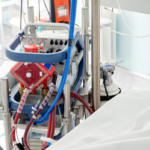
In modern healthcare, the role of a Critical Care Specialist, also known as an Intensivist, is crucial in managing life-threatening medical conditions. These highly trained physicians work in Intensive Care Units (ICUs), providing round-the-clock monitoring and advanced treatments to critically ill patients. Their expertise significantly enhances survival rates, making them an indispensable part of any hospital setup.
Who is a Critical Care Specialist?
A Critical Care Specialist or Intensivist is a doctor trained in managing patients with severe, life-threatening illnesses. They specialize in handling complex medical cases, including multi-organ failure, post-surgical recovery, and critical infections. Their role involves making real-time decisions, coordinating care among different medical teams, and ensuring the best possible outcomes for patients.
Responsibilities of an Intensivist
- Patient Monitoring: Constantly monitoring vital signs and organ functions using advanced medical equipment.
- Emergency Interventions: Performing life-saving procedures such as intubation, mechanical ventilation, and resuscitation.
- Multi-Disciplinary Coordination: Working closely with specialists like cardiologists, neurologists, and surgeons to provide comprehensive care.
- Medication and Treatment Management: Administering specialized medications, including high-dose antibiotics, sedatives, and vasopressors.
- Infection Control: Implementing strict hygiene protocols to prevent hospital-acquired infections.
- Palliative and Ethical Care: Ensuring end-of-life care and supporting families in difficult medical decisions.
How Intensivists Save Lives in the ICU
1. Managing Respiratory Failure
Patients in the ICU often suffer from respiratory failure due to conditions like pneumonia, chronic obstructive pulmonary disease (COPD), or COVID-19. Intensivists play a crucial role in mechanical ventilation, optimizing oxygen therapy, and ensuring the patient’s lungs function effectively until recovery.
2. Handling Multi-Organ Failure
Critically ill patients may experience multi-organ failure, affecting the kidneys, liver, or heart. Intensivists manage this through interventions such as dialysis, extracorporeal membrane oxygenation (ECMO), and continuous renal replacement therapy (CRRT) to support organ function.
3. Sepsis and Infection Control
Sepsis is one of the leading causes of mortality in ICUs. Intensivists diagnose and treat sepsis and septic shock with rapid antibiotic therapy, fluid resuscitation, and advanced monitoring techniques. Their quick decision-making can mean the difference between life and death.
4. Post-Surgical Critical Care
Patients undergoing major surgeries, such as organ transplants, heart bypass, or neurosurgery, require intensive post-operative care. Critical Care Specialists prevent complications like blood clots, infections, and respiratory distress, ensuring a smooth recovery.
5. Trauma and Emergency Care
Accident victims and trauma patients require immediate, high-level care. Intensivists provide advanced trauma life support (ATLS), pain management, and surgical stabilization, ensuring critically injured patients receive the best possible treatment.
Summary
Critical Care Specialists play a vital role in modern healthcare by managing life-threatening conditions in ICUs. Their expertise in respiratory failure, multi-organ dysfunction, sepsis, and trauma care significantly improves survival rates. With the rising demand for high-quality intensive care in Pune, the presence of experienced Intensivists ensures that critically ill patients receive timely and effective treatment.
One such expert in this field is Dr. Amit Kumar Choudhary, a highly qualified Critical Care Specialist in Pune. With an MD in Anesthesia and a DrNB in Critical Care Medicine, he brings vast experience in managing critically ill patients. His expertise in advanced ICU care, emergency interventions, and post-operative management makes him a leading Intensivist in Pune. If you or your loved one needs top-notch critical care in Pune, consulting a specialist like Dr. Amit Kumar Choudhary can make all the difference.




